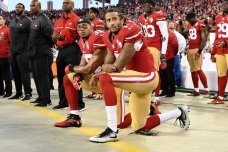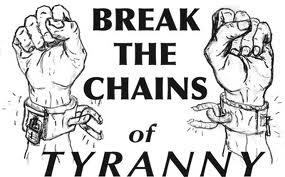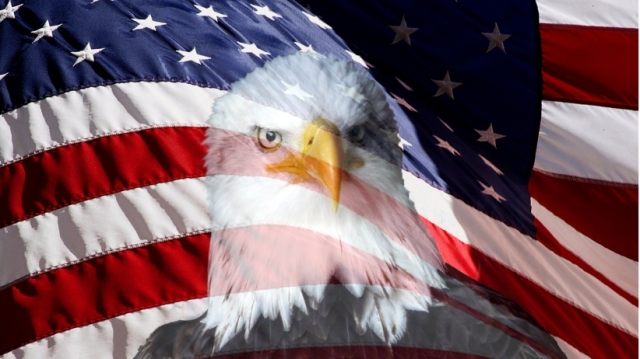What does it mean to be “American?” When Japanese attempt to label me thus, I always reject the term because to them, being American means eating at fast food joints, wearing your shoes in the house, and growing up in one of the situations depicted on the sitcom, Modern Family—basically being white. None of this even comes close to describing me or many people who are U.S. citizens. So what am I you may ask? Hmm, I’m not really into labels for myself; however I wouldn’t be opposed to being called American if we’re talking about a real American; not to be confused with a colonized subject of the Americas, i.e. a slave.
Lots of folks get turned off when terms like ‘slave,’ ‘Uncle Tom,’ ‘racism,’ or ‘conspiracy,’ surface but how can any logical conversation about the founding of the United States of America be conducted without making reference to its very foundation…slavery? Isn’t this what the San Francisco 49ers quarterback, Colin Kaepernick’s story is all about?

Think about it: After you peel back all the inflammatory media-hype what you get is the landmark Supreme Court decision of 1857 known as the Dred-Scott case. Chief Justice Roger B. Taney made it clear: “Current or former slaves and their descendants had ‘no rights which the white man was bound to respect.’” So why all the hub-bub now? The United States policy is, and always has been, clear on this topic. To their credit, they’ve been very consistent. Basically, this concludes my thoughts on this issue, if we can really call it an issue. To me, this story seems to be nothing more than just another way to distract people from the real story.
Message to the so-called “African-American”
Recently, News One Now host, Roland Martin “went bananas on Bill O’Reilly” according to blogger, Tony Magglio, over his harsh criticism of Colin Kaepernick. Martin is being billed as the voice of the black man speaking up to defend his people; but in actuality, he’s just more of the same hype…from a slightly different perspective. Martin called O’Reilly stupid in so many words; which while it may be true besides listing some good reading material he did little to enlighten blacks, or anybody, about what the true situation is in America. He continually kept his listeners in ‘the box’ of white supremacy by referencing famous historical dates; for example, the year 1619. This, according to Martin and most history texts, is when slavery began in the North American colonies. So Martin is basically co-signing on the fact that there were no blacks in the Americas before slavery. But what about all the Olmec heads found in Mexico? What about the Washitaw, Yamasee, Iroquois, Cherokee, Choctaw, Blackfoot, Pequot, and Mohegan (and/or all Indigenous People of America)?

The historical fact that gets swept under the rug by Uncle Toms like Martin is black people are the original people of the planet earth…period. We lived and thrived all around the world way before any 1492, 1619, 1776, or whatever other ‘in the box’ time-period the ruling class wishes to encapsulate you within. According to the historian Dr. John Henrik Clarke, over half of the documented history was already over—already finished—before most of the civilized world was even aware of the existence of a Caucasian race. So you see, the only way a descendant of the original race could be manipulated into labeling himself by a term invented by such a Johnny-come-lately is if he lost the ability to think for himself and instead viewed everything through a western (i.e. Caucasian) lens. If he can get you to believe you’re descendant from a group of slaves that came to America in 1619 but he, himself, came in 1492 he can then claim ownership of America. But if you were here before Columbus perhaps you are the American and he, at best, is a “European-American.”
Roland Martin repeatedly lauded the African-American soldiers who fought for the U.S. overseas even though they knew they had no rights at home. He called this “patriotism.” Is that patriotism? Or should it be viewed as stupidity, fear, or just plain accepting their slave status? When most people think about a slave, they envision a person who is bound by chains. But perhaps the argument should be made that a slave is one who does not require any chains to remain in his subservient position. What do you think?

Stay tuned for the 19th edition of AfroAsiatic Perspectives!
Takuan Amaru is the author of the trilogy Gaikokujin – The Story

